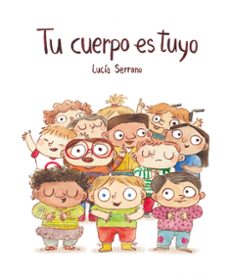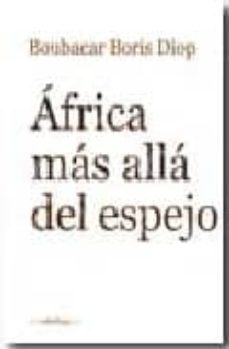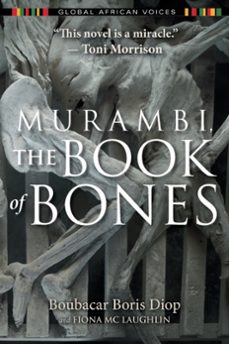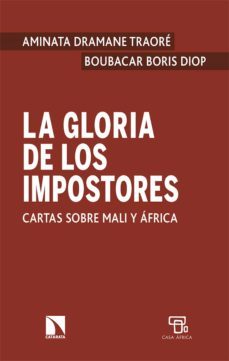Imprescindibles
Más vendidos Libros más leídos eBooks más leídos Todos los libros Todos los libros Autores destacados Series y sagas
Recomendados Libros recomendados Autores destacados Libros que inspiran Vidas con historia LGTBIQ+ English books
Ficción
Literatura Contemporánea Estudios literarios Clásicos Cuentos Poesía Teatro Libros de bolsillo Sagas literarias
Géneros literarios Novela romántica y erótica Novela negra Novela histórica Narrativa fantástica Novela de ciencia ficción Novela de terror Narrativa de humor Narrativa de viajes
No Ficción
Ciencias y tecnología Biología Ciencias Ciencias naturales Divulgación científica Informática Ingeniería Matemáticas Medicina Salud y dietas Formación Idiomas Estilo de vida Libros de Cocina Guías de viaje Narrativa de viajes Deportes Libros de Juegos Manualidades
Humanidades Autoayuda y espiritualidad Ciencias humanas Derecho Economía y Empresa Psicología y Pedagogía Filosofía Sociología Filología Biblioteconomía Estudios filológicos Estudios lingüísticos Estudios literarios Historia y crítica de la Literatura
Infantil
Juvenil
#Jóvenes lectores Narrativa juvenil Clásicos adaptados Libros Wattpad Libros Booktok Libros de influencers Libros de Youtubers Libros Spicy Juveniles Libros LGTBIQ+ Temas sociales Libros ciencia ficción Libros de acción y aventura Cómic y Manga Juvenil Cómic Juvenil Manga Shonen Manga Shojo Autores destacados Jennifer L. Armentrout Eloy Moreno Nerea Llanes Hannah Nicole Maehrer
Libros de fantasía Cozy Fantasy Dark academia Hadas y Fae Romantasy Royal Fantasy Urban Fantasy Vampiros y hombres lobo Otros Misterio y terror Cozy mistery Policiaca Spooky Terror Thriller y suspense Otros
Libros románticos y de amor Dark Romance Clean Romance Cowboy Romance Mafia y amor Romance dramatico Romcom Sport Romance Otros Clichés Enemies to Lovers Friends to Lovers Hermanastros Slow Burn Fake Dating Triángulo amoroso
Cómic y Manga
Novela gráfica Novela gráfica americana Novela gráfica europea Novela gráfica de otros países Personajes, series y sagas Series y sagas Star Wars Superhéroes Cómics DC Cómics Marvel Cómics otros superhéroes Cómics Valiant
Books in English
Books in English Fiction Non Fiction Comic Teen & Young Adult Main Authors Ken Follett Agatha Christie Stephen King Jane Austen Maggie O’Farrell On sale
Books in English for Young Adults Age 13+ Age 15+ Young Adult Authors Rebecca Yarros Sarah J. Maas Brandon Sanderson Ali Hazelwood Alice Oseman
Audiolibros
Literatura Contemporánea Narrativa fantástica Novela de ciencia ficción Novela de terror Novela histórica Novela negra Novela romántica y erótica Historia Historia universal
Humanidades Autoayuda y espiritualidad Ciencias humanas Economía y empresa Psicología y pedagogía Filosofía Infantil Audiolibros infantiles
Ciencia y tecnología Ciencias naturales Divulgación científica Medicina Salud y dietas Arte Cine Música Historia del arte
eBooks
Literatura Contemporánea Narrativa fantástica Novela de ciencia ficción Novela de terror Novela histórica Novela negra Novela romántica y erótica Juvenil Más de 13 años Más de 15 años Infantil eBooks infantiles
Humanidades Autoayuda y espiritualidad Ciencias humanas Economía y Empresa Psicología y Pedagogía Filosofía Historia Historia de España Historia Universal Arte Cine Música Historia del arte
Ciencia y tecnología Ciencias naturales Divulgación científica Medicina Salud y dietas Filología Estudios lingüísticos Estudios literarios Historia y crítica de la Literatura Estilo de vida Cocina Guías de viaje Ocio y deportes
BOUBACAR BORIS DIOP
Recibe novedades de BOUBACAR BORIS DIOP directamente en tu email
Filtros
Del 1 al 9 de 9
ZULMA 9782843046780
Construit comme une enquête, avec une extraordinaire lucidité, le roman de Boubacar Boris Diop nous éclaire sur l'ultime génocide du XXe siècle. Avant, pendant et après, ses personnages se croisent e
Ver más
Tapa blanda
AUTOR-EDITOR 9788461306053
El escritor senegalés Boubacar Boris Diop reúne en este libro diferentes ensayos con una misma premisa: para los atacados y humillados de África, la resistencia cultural es más imperativa que nunca. La imagen que recibimos de Africa no solo no se corresponde con la realidad, sino que pretende que cada africano se averguence de su memoria y de su identidad. Por consiguiente, tomar la palabra es un deber moral para todos aquellos que tienen la posibilidad de hacerse escuchar. El presente libro nace de esta responsabilidad. Estructurado en cuatro partes, Diop denuncia rotundamente la actuacion de la Francia de Mitterrand en el genocidio de Ruanda, al mismo tiempo que elabora un discurso autocritico en torno al escritor africano, reflexiona sobre el exilio economico de los jovenes, los desafios culturales de la globalizacion o el papel nefasto de las elites y expone una introduccion magistral a dos de las grandes figuras senegalesas del siglo XX, Senghor y Cheikh Anta Diop, que, como el resto del libro, son una invitacion sincera y coherente a superar un imaginario impregnado todavia por el racismo.
Ver más
Tapa blanda
Ediciones Wanafrica 9788494242229
Tras años de exilio, Cornelius regresa a Ruanda para enfrentarse a una historia personal, trágicamente ligada a la de su pueblo. En torno a la suya se entrelazan diferentes historias de ese pasado con limites precisos entre victimas y verdugos. Construida como una investigacion, con una lucidez extraordinaria, Murambi, el libro de los huesos nos informa sobre el ultimo genocidio del siglo XX.
Ver más
Tapa blanda
EL ALEPH 9788476699874
La reina Johanna Simentho del reino de Wissombo. ¿Ficción o realidad? No importa, puesto que su magia existe. Puesto que trae el aliento de la independencia, de la libertad y de la dignidad. Fadel, el hijo del millonario, lo cree; lo abandonara todo para servirla. Su hermano Badou, el revolucionario, tarareara sin ilusiones la cancion de Johanna. Por lo que a Ismaila, joven burocrata, y Ndella, su mujer, se refiere, la misteriosa desaparicion de Fadel les arrastrara tambien tras la estela de la reina Johanna, punto focal de la historia.Para todos, el eco de los tambores de la memoria sonara arrastrado por el viento de la Historia.Para mas informacion podeis entrar en Casa Çfrica: www.casafrica.es/coleccion_literatura_casa_africa.jspaa
Ver más
Tapa blanda
INDIANA UNIVERSITY PRESS 9780253023421
In April of 1994, nearly a million Rwandans were killed in what would prove to be one of the swiftest, most terrifying killing sprees of the 20th century. In Murambi, The Book of Bones, Boubacar Boris Diop comes face to face with the chilling horror and overwhelming sadness of the tragedy. Here, the power of Diopas acclaimed novel is available to English-speaking readers through Fiona Mc Laughlinas crisp translation and a compelling afterword by Diop. The novel recounts the story of a Rwandan history teacher, Cornelius Uvimana, who was living and working in Djibouti at the time of the massacre. He returns to Rwanda to try to comprehend the death of his family and to write a play about the events that took place there. As the novel unfolds, Cornelius begins to understand that it is only our humanity that will save us, and that as a writer, he must bear witness to the atrocities of the genocide.
Ver más
Tapa blanda
DRAMANE TRAORE, AMINATA y DIOP, BOUBACAR BORIS
Los Libros de la Catarata 9788413523583
La gloria de los impostores es un estimulante intercambio de cartas que analiza el conflicto de Mali, sus causas, sus contradicciones y sus absurdos. Y pone de manifiesto la toma neoimperial del África subsahariana la Operacion Serval en 2013 presentada como una odisea moral y desinteresada: la lucha entre el bien y el mal. Los acontecimientos posteriores, que llegan hasta nuestros dias, obligan a preguntarse si, al igual que ocurrio con Estados Unidos en Irak o Afganistan, Francia no se pavoneo demasiado pronto de su exito en su "guerra contra el terrorismo". Mas alla del paradigmatico caso de Mali, los dos autores comparten sus reflexiones sobre la Primavera Arabe y las guerras de Occidente fuera de sus fronteras, especialmente en Africa. Cada conflicto les ofrece la oportunidad de exponer los mecanismos de la misma impostura triunfante.
Ver más
Tapa blanda
Almuzara 9788416392070
Ngirane Faye es un anciano senegalés de Dakar que, sintiendo cercana su muerte, decide escribir al favorito de entre sus descendientes, su nieto Badou, que emigró hace años a "la tierra de los blancos" y esta en algun lugar de Europa. En el ocaso de su vida, Nguirane esta convencido de que nunca volvera a verlo. Por eso vierte en siete libros la historia de su familia y del lugar en el que vive, libros en los que aconseja, recuerda el pasado y explica las causas subyacentes del caos en que vive su pais. Su relato comienza con la evocacion de las condiciones para la repatriacion del cuerpo de su hijo Asan, el padre de Badu, que murio en Marsella, adonde habia ido para continuar su carrera futbolistica; pero se convertira en una cronica en la que derrama su ira, su amargura, tambien el amor por un espacio y unas gentes. Nguirane tiene mucho que contar a Badou: la vida en Niarela, barrio popular de Dakar; su gente, su locura, su rumor, su verdad; la historia de sus antepasados y de sus familias, cargada de leyendas; la convivencia con su hijastra, Yacine, viuda poco afligida que regresa de Marsella.
Ver más
Tapa blanda
Del 1 al 9 de 9

































